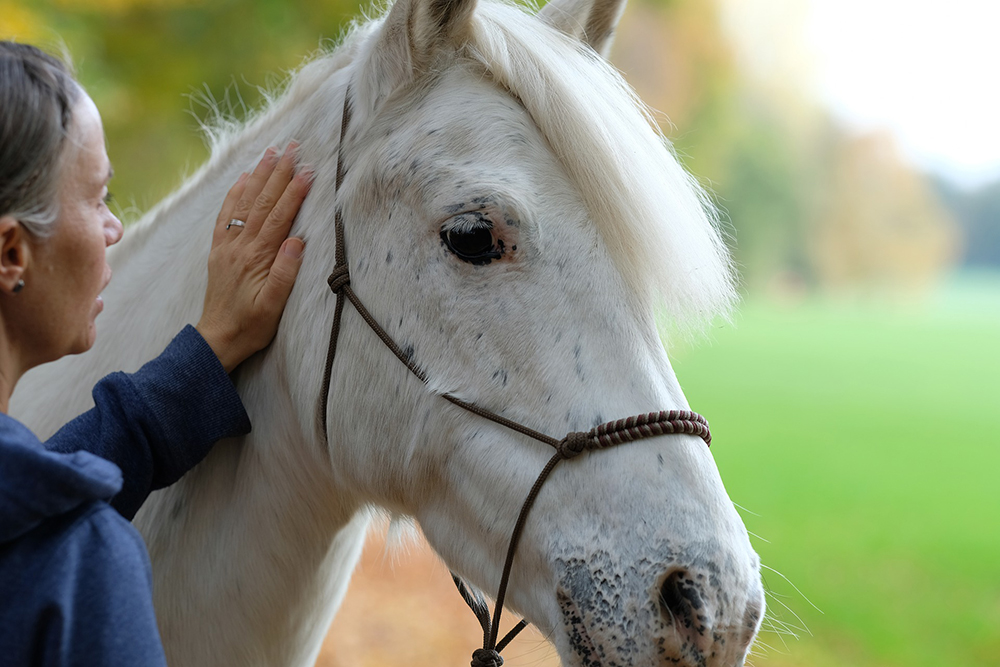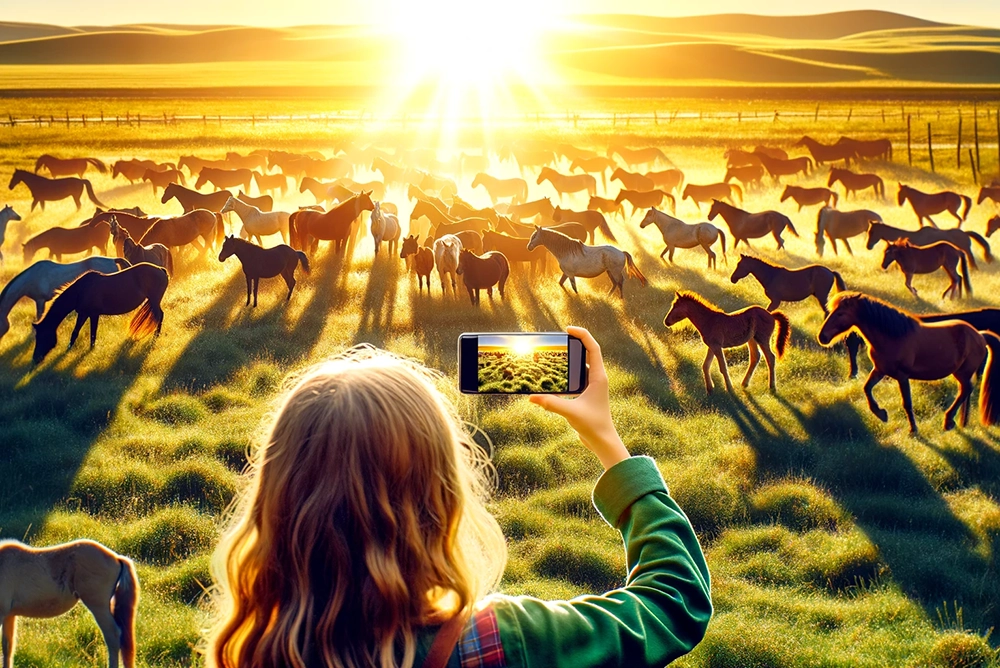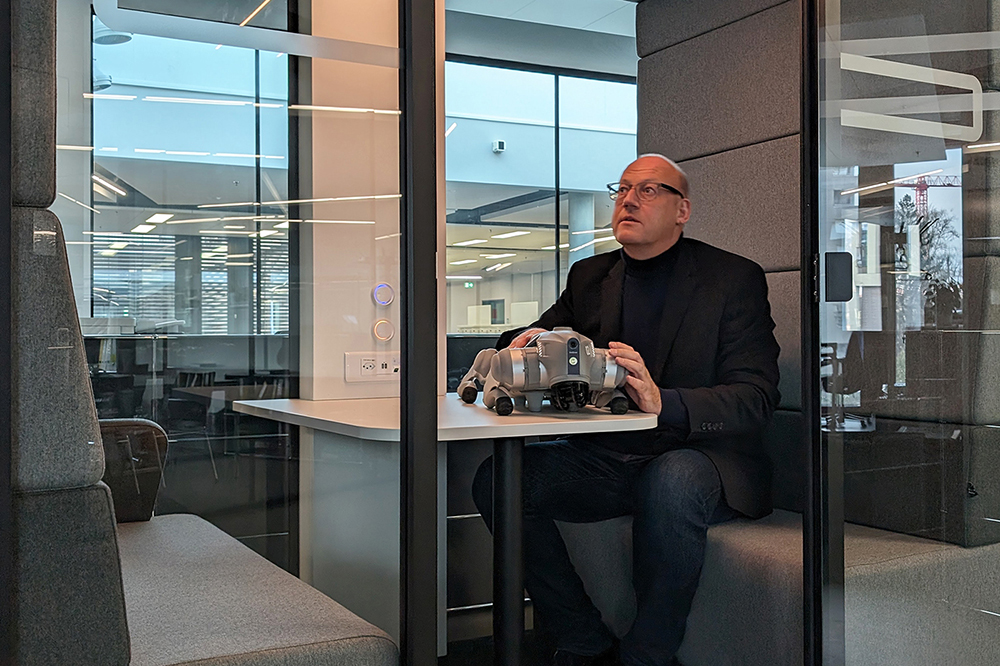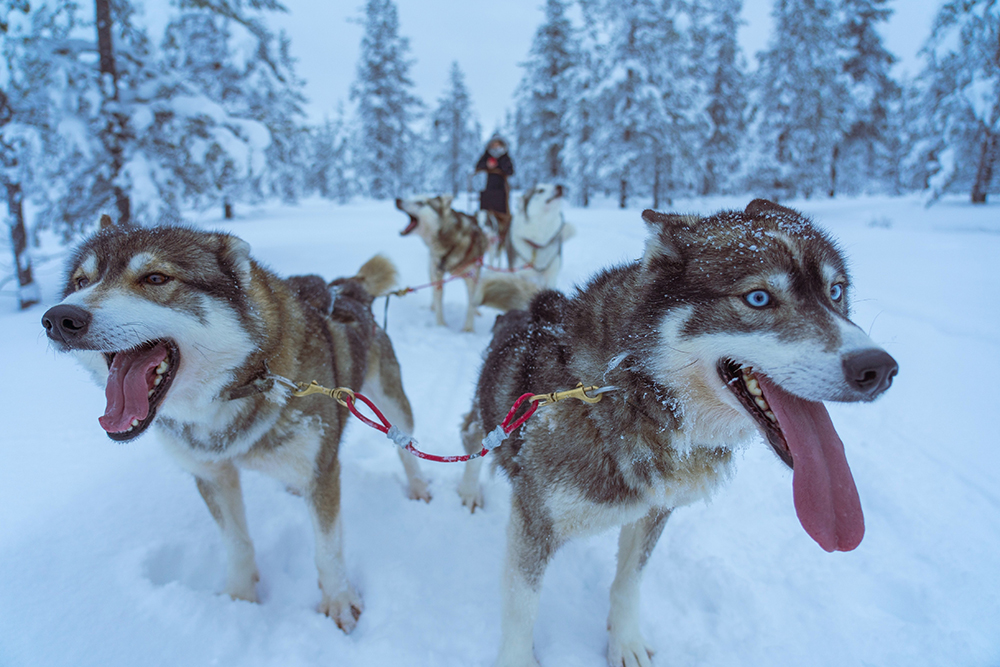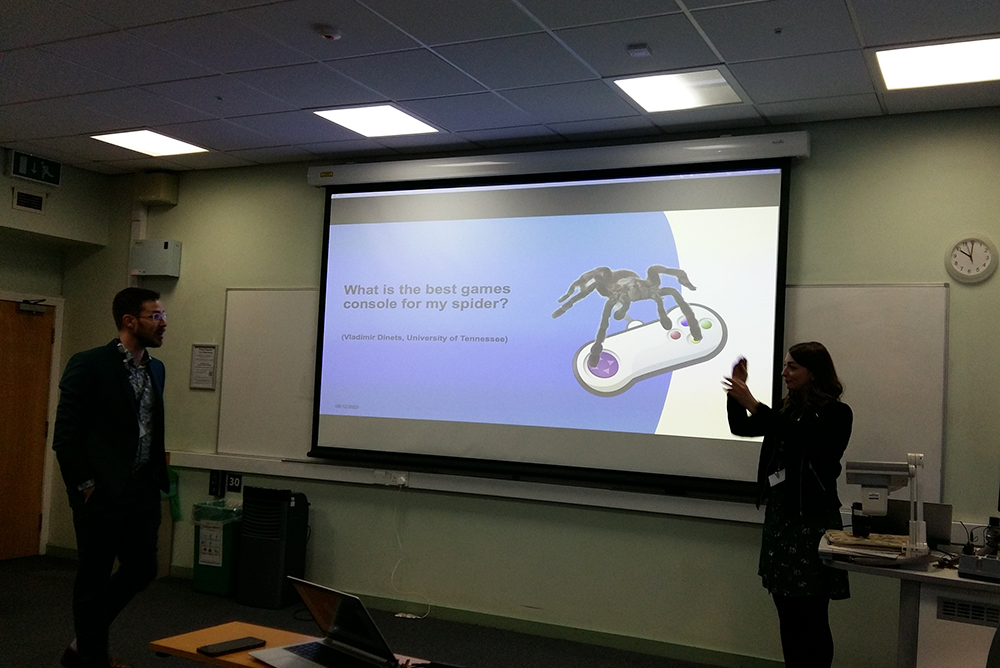On May 28, 2024, the interim presentation for the project “The Animal Whisperer” took place at the FHNW School of Business. It was initiated by Prof. Dr. Oliver Bendel, who has been working on animal-computer interaction and animal-machine interaction for many years. Nick Zbinden, a future business information systems specialist, was recruited to work on the project. He developed three applications based on GPT-4o, the Cow Whisperer, the Horse Whisperer, and the Dog Whisperer. They can be used to analyze the body language and environment of cows, horses, and dogs. The aim is to avert danger to humans and animals. For example, a hiker can receive a recommendation on their smartphone not to cross a pasture if a mother cow and her calves are present. All they have to do is open the application and take photos of the area. The tests are already very promising. Nick Zbinden is currently talking to three human whisperers, i.e. experts in this field who are particularly good at assessing the body language and behavior of animals and are particularly good at dealing with them. Photos – showing different positions of the ears or heads, for example – are also being described by them and then fed by him into the applications. The final results will be available in August 2024.
“The Animal Whisperer” Project Starts
On March 18, 2024, the kick-off meeting for the project “The Animal Whisperer” took place at the FHNW School of Business. It was initiated by Prof. Dr. Oliver Bendel, who has been working on animal-computer interaction and animal-machine interaction for many years. Nick Zbinden, a student of business information systems, has been recruited to work on the project. As part of his final thesis, he will develop three GPT-4-based applications that can be used to analyze the body language and environment of cows, horses and dogs. The aim is to avert danger to humans and animals. For example, a hiker can receive a recommendation on their smartphone not to cross a pasture if a mother cow and her calves are present. All they have to do is call up the application and take a photo of the area. Nick Zbinden will evaluate literature and conduct several expert interviews to find out more about the situation of farm and domestic animals and their behavior. He will demonstrate the possibilities, but also the limitations of multimodal language models in this context. The results will be available in August 2024 (Image: DALL-E 3).
A New Inhabitant in the SRL
Prof. Dr. Oliver Bendel’s privately funded Social Robots Lab (SRL) has been home to the Unitree Go2 since December 2023. It goes by the name Bao (Chinese for “jewel” or “treasure”). Heise writes in an article: “The basic model of the Go2 is equipped with a lidar on the head, which has a hemispherical field of view of 90 degrees vertically and 360 degrees horizontally. The minimum range of the lidar is around 5 cm. This enables the robot to navigate independently in the terrain, recognize obstacles and also avoid them. The robot runs at a speed of up to 2.5 m/s and is extremely agile. … A 2-megapixel camera is also on board, which can be used to take snapshots and videos.” (Heise News, July 27, 2023; own translation) The information systems specialist and technology philosopher is keen to make progress in the field of animal-machine interaction. He defined this field of work in 2013 in his article “Considerations about the Relationship between Animal and Machine Ethics“, based on the concept of animal-computer interaction pioneered by Clara Mancini. Since then, he has developed several artifacts and concepts in this area, including Robocar (modeling for animal-friendly cars), LADYBIRD (prototype of an insect-friendly vacuum cleaner robot), HAPPY HEDGEHOG (prototype of a hedgehog-friendly vacuum cleaner robot), and ANIFACE (concept for a system with facial recognition to identify brown bears). Bao will be used to test the reactions of domestic, farm, and wild animals. The aim is to make robots not only human-friendly, but also animal-friendly (Photo: Frank Graef).
Artificial Intelligence & Animals
The online event “Artificial Intelligence & Animals” will take place on 16 September 2023. “AI experts and attorneys will discuss the intersection of AI and animals in this UIA Animal Law Commission and GW Animal Law webinar” (Website Eventbrite) Speakers are Prof. Dr. Oliver Bendel (FHNW University of Applied Sciences and Arts Northwestern Switzerland), Yip Fai Tse (University Center for Human Values, Center for Information Technology Policy, Princeton University), and Sam Tucker (CEO VegCatalyst, AI-Powered Marketing, Melbourne). Panelists are Ian McDougall (Executive Vice President and General Counsel, LexisNexis London), Jamie McLaughlin (Animal Law Commission Vice President, UIA), and Joan Schaffner (Associate Professor of Law, George Washington University). Oliver Bendel “has been thinking on animal ethics since the 1980s and on information and machine ethics since the 1990s”. “Since 2012, he has been systematically researching machine ethics, combining it with animal ethics and animal welfare. With his changing teams, he develops animal-friendly robots and AI systems.” (Website Eventbrite)
Minding Animals 2024
After an hiatus of six years, Minding Animals will return, with a conference tentatively scheduled to be held 11 – 17 July, 2024. This was announced by the organizers in a message dated December 19, 2022. “Just like the postponed 2021 conference, Minding Animals 5 (MAC5) will be hosted by the Centre for Compassionate Conservation (CfCC) in the Transdisciplinary School at the University of Technology, Sydney (UTS).” (Message from Minding Animals International) The organizers refer to the Minding Animals Bulletin 53 regarding the vision of the conference and the preparation of the authors. “We believe that the greatest threat posed to the planet, to all planetary life, human or nonhuman animal, plant or otherwise, including the current pandemic, is the intersection of animal agriculture and the climate crisis. Hence, the urgency and criticality of climate as the key theme.” (Minding Animals Bulletin 53) Possible subtopics include “The biodiversity crisis and climate change”, “Rewilding and compassionate conservation”, “The animal industrial complex”, “Animals, the circular economy and sustainable food systems”, and “Animals in development and food sovereignty”.
Face Recognition for Bears in the Alps
At the end of the ACI conference, the “Paper Session 6” was held, which was titled “Investigating Human-Animal Relations”. Sarah Webber (University of Melbourne) gave a talk on “Watching Animal-Computer Interaction: Effects on Perceptions of Animal Intellect”. In the experiment, people observed orangutans interacting with computer applications. It was examined how they changed their judgments regarding the animals’ intelligence and behavior. The talk that followed came from Alexandra Morgan (Northumbria University) and was titled “Blind dogs need guides too: towards technological support for blind dog caregiving”. She addressed the needs of blind dogs and showed what gadgets are on the market to assist them. Her team developed an app called “My Blind Dogo” that could help owners of blind dogs. The session ended with a talk on “A Face Recognition System for Bears: Protection for Animals and Humans in the Alps” by Oliver Bendel (University of Applied Sciences and Arts Northwestern Switzerland). He presented an integrated system with cameras, robots, and drones that Ali Yürekkirmaz and he had designed. The ACI took place from 5 to 8 December 2022 in Newcastle upon Tyne. It is the world’s leading conference on animal-computer interaction. More information on the conference via www.aciconf.org/aci2022.
Wearables for Sled Dogs
On the last day of the ACI Conference (December 8, 2022), “Session 5: Sensors & Signals, Part II: Electric Boogaloo” started after the lunch break. Carlos Alberto Aguilar-Lazcano (CICESE-UT3) gave a talk on the topic “Towards a monitoring and emergency alarm system activated by the barking of assistant dogs”. The next presentation was “WAG’D: Towards a Wearable Activity and Gait Detection Monitor for Sled Dogs” by Arianna Mastali (Georgia Institute of Technology). According to her, studies have shown orthopedic injuries to be most common among sled dogs. These like to move very much, but repeatedly exceed their capabilities. To solve this problem, the team has developed a technical solution, a special wearable, with the help of which data on the condition of the animals are generated. “Spatial and Temporal Analytic Pipeline for Evaluation of Potential Guide Dogs Using Location and Behavior Data” was the title of the next talk, given by David L. Roberts (North Carolina State University), followed by “Comparing Accelerometry and Computer Vision Sensing Modalities for High-Resolution Canine Tail Wagging Interpretation”, given by Devon Martin (North Carolina State University). More information on the conference via www.aciconf.org/aci2022.
Talking Eggs
After the keynote on the morning of December 8, 2022, ACI2020 continued with “Paper Session 4: Sensors & Signals, Part I: Origin Stories”. David L. Roberts (North Carolina State University) presented on “Motion-Resilient ECG Signal Reconstruction from a Wearable IMU through Attention Mechanism and Contrastive Learning”. The next talk, “TamagoPhone: A framework for augmenting artificial incubators to enable vocal interaction between bird parents and eggs”, was given by Rebecca Kleinberger (Massachusetts Institute of Technology & Northeastern University). The starting point of her research was that some birds have pre-hatching vocal communication. The last presentation before the lunch break that was given online was “Simultaneous Contact-Free Physiological Sensing of Human Heart Rate and Canine Breathing Rate for Animal Assisted Interactions: Experimental and Analytical Approaches” by Timothy Holder and Mushfiqur Rahman (North Carolina State University). More information on the conference via www.aciconf.org/aci2022.
Time Savers or Toys?
The fourth day of the ACI2022 conference – December 8, 2022 – began with a keynote by Carys L. Williams (DogsTrust), titled “Time Savers or Toys? Realities of Animal Technology in Industry”. “Carys is a mixed-methods Research Officer at the UK’s largest dog welfare charity, Dogs Trust. Carys’ work has focused on practical and applicable dog behaviour and welfare research to improve the lives of dogs, especially those in Dogs Trust’s 22 rehoming centres (around 12,000 dogs a year!). For the last 2 years Carys has been project lead for the Dogs Trust Post Adoption Support longitudinal research project. She has additionally supported the charity’s move to collect more and better dog data, helping build exciting bespoke digital systems. Carys has also spent over a decade in the zoo industry and is currently a volunteer invertebrate keeper at ZSL London Zoo.” (Website ACI2022) Carys L. Williams started her keynote with a quote from Vladimir Dinets (University of Tennessee): “What is the best games console for my spider?” … She then turned to real-world issues, such as supporting the welfare of dogs through technological means. More information on the conference via www.aciconf.org/aci2022.
About Parrots and Dogs
The ACI2022 conference continued on the afternoon of December 7, 2022 after the coffee break (“Paper Session 3: Learning From and With Each Other”). Cristóbal Sepulveda Álvarez (Universidad de Chile) gave a talk on the topic “Measuring Digitally Comparative Abilities Between Discreet and Continuous Quantities through a Digital Enrichment Application”. He showed a parrot that had to choose different quantities on a touch screen. Dirk van der Linden (Northumbria University) was present on behalf of Jasmine Forester-Owen (Northumbria University). He spoke about “Noisy technology, anxious dogs: can technology support caregiving in the home?”. In their prototype, they combine noise detection and body language identification in dogs. Jérémy Barbay (Universidad de Chile) gave the last three presentations of the day: “Comparing Symbolic and Numerical Counting Times between Humans and Non-Humans Through a Digital Life Enrichment Application”, “Popping Up Balloons for Science: a Research Proposal”, and “A Loggable Aid to Speech (for Human and Non-Human Animals): A Research Proposal”. More information on the conference via www.aciconf.org.
